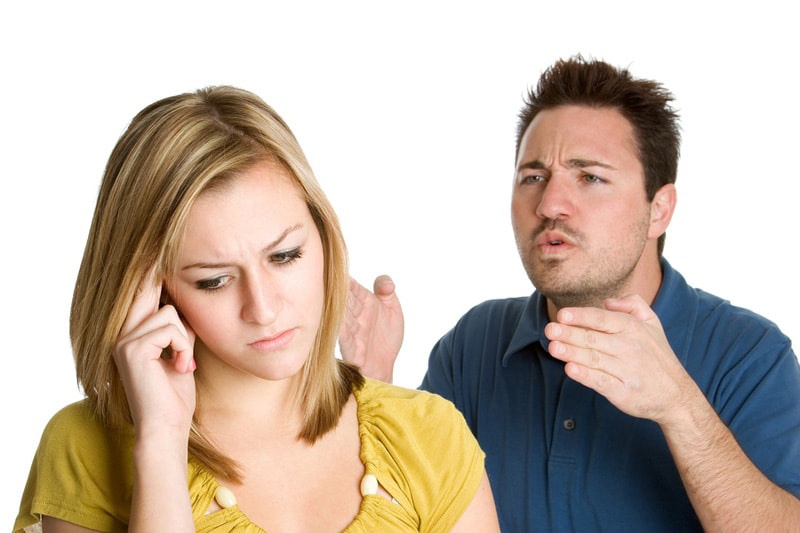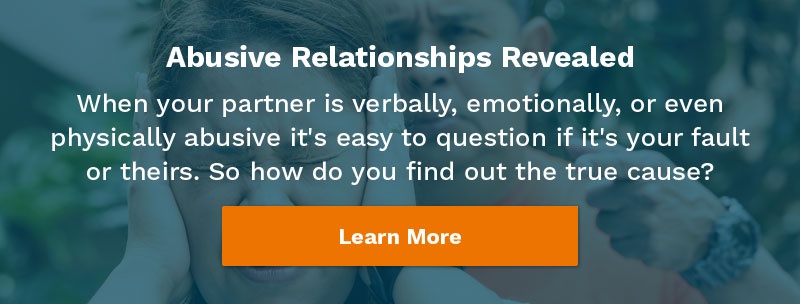 Part 1 of 2
Part 1 of 2
Abuse in relationships can take many forms. Physical abuse is what we often think of because in many cases it’s obvious. But verbal abuse happens much more often than physical and more than many people realize.
Verbal abuse is a common form of abuse in many relationships. However, it can be very subtle and hard to recognize, so much so that often victims don't even know it’s happening. Many will assume, or be told, that this is what’s normal in a relationship. And because of that belief wait an extremely long time before seeking help, if they ever do.
Verbal abuse is often disguised or explained away as something else, such as humor ("I was just making a joke") or love ("you know I love you"). A skilled abuser can destroy your self-esteem while at the same time making you believe that they really care for you. Verbal abuse can also become so regular that it becomes normal communication.
How Can You Tell If You’re Being Verbally Abused
Victims often confuse verbal abuse with communication that occurs during arguing or normal disagreements. But verbal abuse goes far beyond disagreement and there is nothing normal about it. A verbal abuser seeks to control his or her partner with words and intimidation. They routinely seek to undermine the confidence and independence of their victim, causing them to question their own abilities and live in fear of doing or saying the wrong thing.
A common problem for victims of verbal abuse is that the abuse makes them confused and they don't know what to believe - their own thoughts or the abusers' words. Their sense of self and personal identity becomes reliant upon what their abuser tells them.
So if verbal abuse is so hard to recognize, are there any verbal abuse signs? Yes.
Below are 8 verbal abuse signs. These are from the article How Can Someone Identify and Respond to Verbal Abuse? by Cathy Meyer.
- Being called names by your spouse. Any negative form of name calling is unacceptable. If you feel that it is a put down, then it most likely is. There are names that are obvious and, without question abusive. Then there are the covert, veiled attempts to put a spouse down that are harder to identify. Verbal abusers love to use constructive criticism to beat a spouse down. If your spouse is constantly criticizing you, “for your own good,” be careful. This is the most insidious form of verbal abuse.
- Using words to shame. Critical, sarcastic, mocking words meant to put you down either alone or in front of other people.
- Yelling, swearing and screaming. I call this the “walking on eggs shells” syndrome because you are living with someone who goes verbally ballistic for very little cause.
- Using threats to intimidate. No threat should be taken likely, even if your spouse tells you they are only joking, especially if it causes you to change behaviors or to feel on guard in the relationship.
- Blaming the victim. Your spouse blows his/her top and then blames you for their actions and behavior. If you were only perfect they wouldn’t lose control!
- Your feelings are dismissed. Your spouse refuses to discuss issues that upset you. They avoid discussion of any topic where they might have to take responsibility for their actions or words.
- You often wonder why you feel so bad. You bury your feelings, walk on egg shells and work so hard at keeping the peace that every day becomes an emotional chore. You feel depressed and have even wondered if you are crazy.
- Manipulating your actions. The persistent and intense use of threatening words to get you to do something or act in a way you find uncomfortable. This form of verbal abuse is common at the end of a marriage. If your spouse doesn’t want a divorce they will say whatever it takes to play on your emotions, to get you to stay in the marriage. All in an attempt to get you to comply with their desires, regardless of what is best for you as an individual.
What Should You Do About Verbal Abuse?
Do you recognize any of these verbal abuse signs in your relationship? If so, in the next post we'll take a look at some of the things you can do to stop the verbally abusive behavior in your relationship.
One of the things you’ll need to do first, however, is recognize and accept that you're in an abusive relationship. Verbal abuse can be very easy to explain away, but doing so will mean that not only will things not change, but they’ll very likely get worse. Abusers don’t typically change their ways without intervention and help. And unfortunately, verbal abuse can often escalate into physical abuse.
The next thing to do is get some help. If the verbal abuser won’t get help then get it yourself without them. There are things you can learn do to change their behavior and lessen the toll on you.
If you feel that you or someone you love could be in a verbally abusive relationship it’s time to get help.
This is the first article of two on verbal abuse and signs of verbal abuse. In the next article, Verbal Abuse - 8 things You Can Do To Stop Verbal Abuse, we'll identify things you can do to stop verbal abuse. Sign-up for our blog at the bottom of this page and be sure not to miss future articles like this one.
Editor's Note: This post was originally published August 27, 2010. It has been updated for accuracy and comprehensiveness.
Looking for More? Check Out These Articles
- Things You Can Do To End Verbal Abuse (Part 2)
- Look For These Signs Of Emotional Abuse In Your Relationship
- Does It Seem Like All Men Lie And Cheat On Their Partners?
- Get More Help with an Abusive Relationship






















































21 Comments
Click here to read/write comments